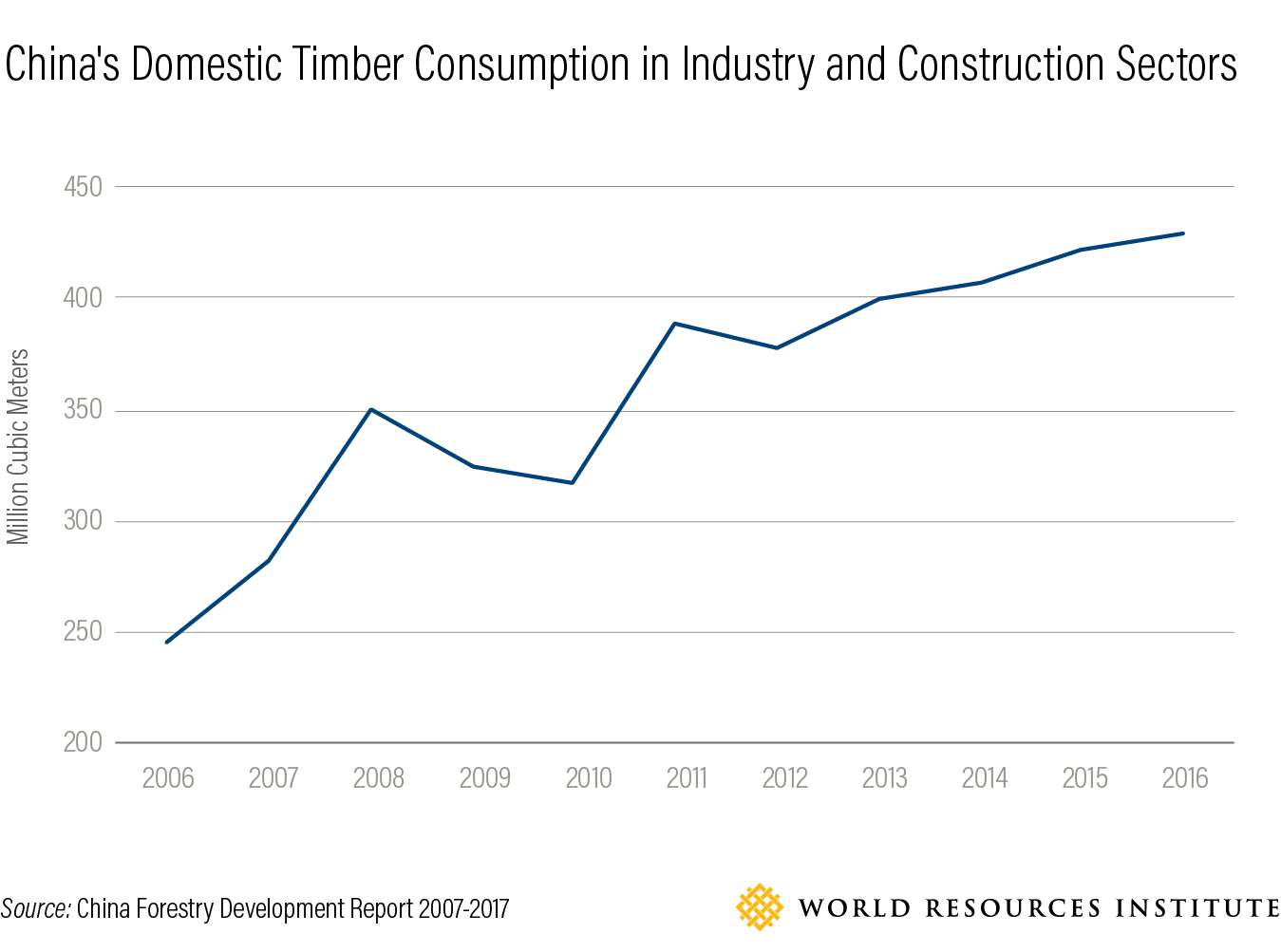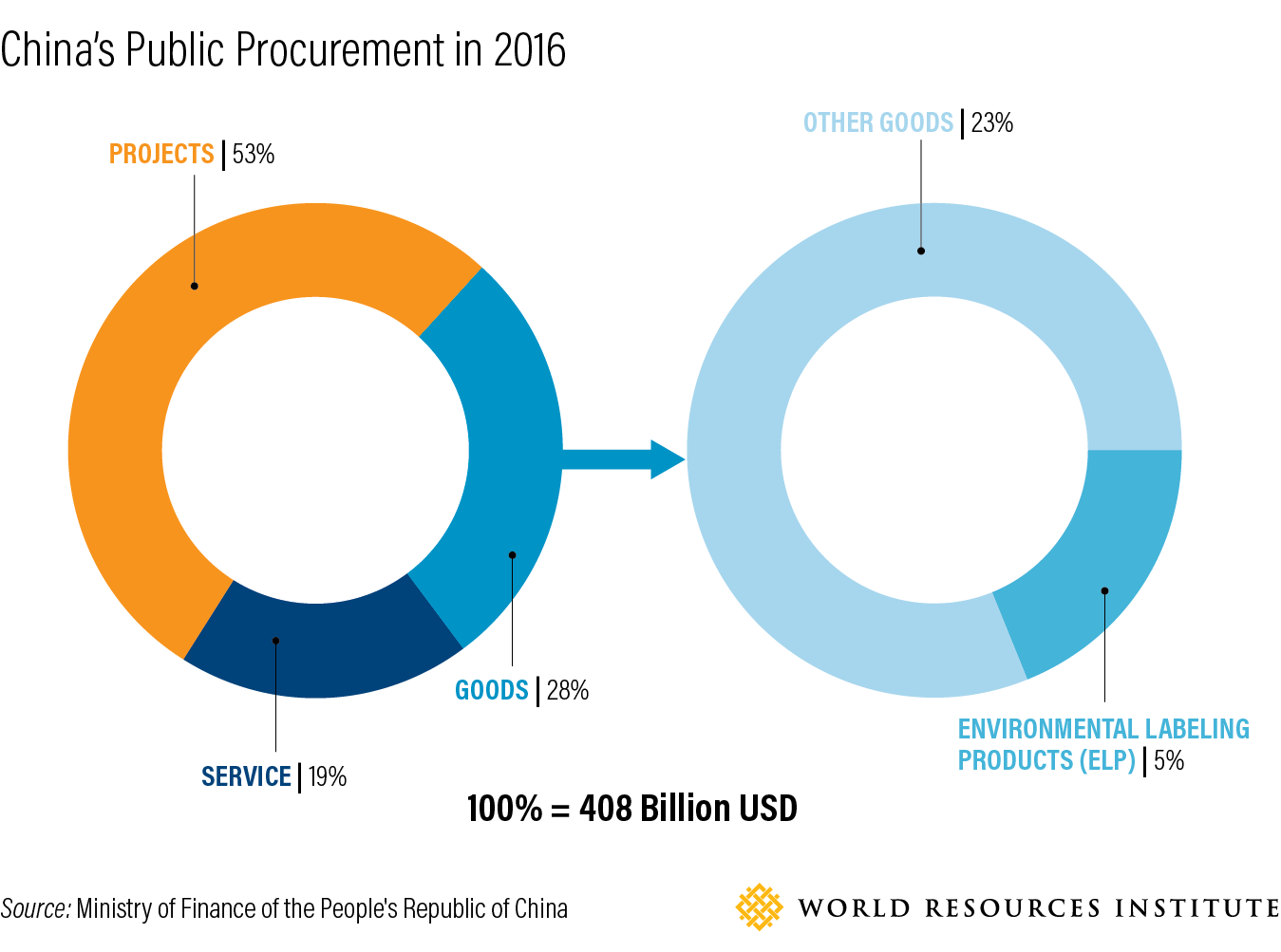In 2018, China wrote the concepts of "ecological civilization" and "a community of shared future for mankind" into its Constitution. The new concepts signal China's prioritization of the environment in its policy agenda and willingness to engage cooperatively in global affairs.
China has emerged in recent years as a leader in global environmental governance, playing an active role in global climate efforts and green finance.
Now, the country has opportunities to play a bigger role in global efforts to protect forests. By extending two programs already in place, China—the world's largest consumer of timber—can bring its actions into harmony with the constitution's goals.
The Global Timber Trade Goes Through China
China is the largest importer and consumer of timber products. Its forest product imports—such as logs, sawnwood, and paper—almost doubled by volume in the recent decade. In 2016, China imported logs from more than 100 countries in the world. While China has been a major processor and exporter of timber products globally, its consumption in the domestic market significantly increased in recent years.
The growing demand for timber, if not managed well, is likely to accelerate unsustainable – and often illegal – logging and associated trade. It could take away relevant government tax revenue, reduce the livelihoods of communities dependent on forests and hurt legal businesses' competitiveness. Environmentally, illegal logging threatens biodiversity and accelerates deforestation and forest degradation in key timber supply countries, undermining the global climate goals China has championed. In fact, the lack of controls on the legality of imported timber in China has already raised concerns about illegal timber mixed into forest product supply chains. More than 15 percent of China's timber product imports were estimated to be illegal in 2013.
China has committed to combatting illegal logging and associated trade. It has signed bilateral agreements on these topics with a few states, explored a national timber legality verification system and encouraged the private sector to conduct due diligence to comply with legality regulations in markets such as U.S. and EU.
But despite efforts to address timber legality among the exporting sector, China's domestic market still lacks appropriate measures to promote sustainability and legality. Because of China's large share in global forest product market, this gap could have important implications for global forest management.

A Greener Supply Chain
As China rebalances its economy towards quality growth and green development, one policy goal is to promote green supply chain reform across sectors. The reform aims to incorporate the concepts of environmental protection and energy conservation throughout a product's life cycle. In November 2017, the State Council issued a Guidance Policy on Promoting the Innovation and Application of the Supply Chain, in which green supply chain was, for the first time, highlighted in a national policy document. Pilot programs for the automotive and electronics industries are already underway.
Forests currently aren't covered by this measure. China could extend its leadership on green supply chain by bringing forest-risk commodities, especially timber, under this guidance policy. In the case of timber, the guidance could include clear requirements on sustainable and legal sourcing of timber products and to establish a traceable supply chain from forests to final products in the industry.
Greening the supply chain of forest products in China could help curb illegal logging and associated trade and mitigate climate change through reducing deforestation globally. It would also help China secure its long-term timber supplies and enhance Chinese companies' global competitiveness.
When the Government Buys Green, Everyone Follows
China spends a massive amount of money on public procurement including goods, projects and service—in 2016, around $408 billion, accounting for 11 percent of national spending. What if, in accordance with China's newly-enshrined green constitutional goal, that money could be spent sustainably?
That's the point of the Green Public Procurement (GPP) program, an important policy tool fostering sustainability since its inception in 2006. Under GPP, all levels of government agencies and even other public institutions, such as schools and hospitals, should prioritize goods procurement from two lists: the environmental labeling products (ELP) and energy conservation products (ECP).
Three categories of forest products—furniture, wood-based panels, and copy paper—are currently included in the ELP list. But the GPP currently lacks clear definitions and measurable requirements on sustainability and legality for souring of those products. China spent around $ 21.6 billion in 2016 on procurement from the ELP list, accounting for 81.5 percent of products from the same categories. Because the public sector makes up such a large portion of demand in China, the GPP can send a strong signal to the private sector to meet the requirements in their production.
The signaling effect allows GPP to play an important role in promoting sustainability and legality in China's domestic forest product market. WRI is working to incorporate best practices into the certification required for the ELP. To qualify, a product must obtain the China Environmental Label. The Forest Legality Initiative at WRI, together with TRAFFIC, is partnering with the only certification body, China Environmental United Certification Center (CEC), to incorporate requirements on responsible and sustainable timber sourcing into GPP.
GPP could make a bigger difference by making the ELP list mandatory for all relevant public procurement and including more products especially forest products in the list. Unlike the ECP, the ELP list, although prioritized, is not mandatory. GPP could also extend its mandate from the purchase of goods to projects, which accounts for more than half of China's Public Procurement in 2016.

From the Environment to Forests
The revision of the Constitution, along with the recent restructuring of government agencies, suggests that China is ready to tackle environmental challenges both at home and abroad. In fact, China is making progress in the war against pollution and has successfully met its 2020 carbon intensity reduction target ahead of schedule.
Now, China has opportunities to apply its successes in protecting the environment to conserving forests, which plays an important role in achieving "ecological civilization" both in China and globally. By greening its supply chain and public procurement of forest products, China can make huge contributions towards reducing illegal logging and protecting forests around the world.